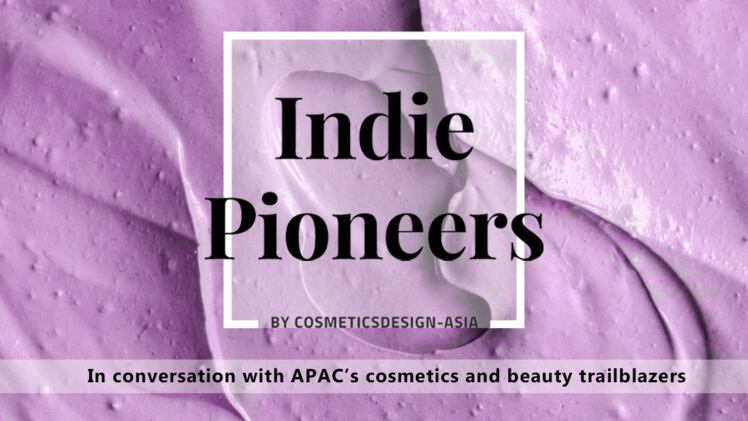Earlier this year, the United Nations' (UN) Intergovernmental Panel on Climate Change (IPCC) released a climate report stating it was ‘now or never’ to limit global warming to 1.5 degrees, indicating that harmful carbon emissions from 2010-2019 had “never been higher in human history”. Speaking of the report, UN secretary-general Antonio Guterres said that unless action was taken soon, the world was on track for “unprecedented heatwaves, terrifying storms, widespread water shortages and the extinction of a million species of plants and animals”.
Closing this year’s IFSCC Congress last month, Sir Jonathon Porritt, British environmentalist and co-founder of sustainability charity and NGO Forum For the Future, said the flooding disaster in Pakistan, where 33 million people had been displaced from their homes represented the worst flooding event in the country’s history.
“For us, it’s over; the disaster in Pakistan has gone – from our news, from the media, from our minds, from our thoughts. For the people of Pakistan, and particularly the 33 million displaced, it’s really only just starting. Much of the water has not subsided and it will probably stay there as flood water, causing huge health problems for the next few weeks to come,” Porritt told attendees during his plenary keynote presentation in London, UK.
“Now, many of you, particularly some of the bigger companies, may well have colleagues in Pakistan or Southeast Asia who are working, coping, with some of these things (…) And people may be asking themselves: is this now the shape of things to come?”
“…The truth is, that these things are going to get a lot worse. They’re going to impact a lot more people, a lot more often, with a lot more disruption to everything we take for granted in our relatively comfortable civilised world,” he said.
‘Business continuity’ needs to change gears
The global swathe of converging crises – water shortages, supply chain pinch points, human rights abuse and environmental disasters – was very real, Porritt said, and could now be described as a collective “permanent crisis” that had many manifestations and impacted business operations in a plethora of ways.

The corporate world and industries, therefore, had to shift thinking from “business continuity as we’ve known it”, where there was the occasional environmental disruption, to understanding that the world was now “so volatile, so disrupted, so vulnerable” to physical and environmental shocks with “permanent, ongoing, increasingly disruptive change” to operating models, he said.
“That isn’t nice, good news. But it’s something smart companies can plan for, and make themselves more valuable, to shareholders and customers.”
So, what could beauty and personal care companies do about it?
The one idea that is most powerful for me is the notion of ethical integrity through the entire value chain – Sir Jonathon Porritt, British environmentalist and co-founder of sustainability charity and NGO Forum For the Future
“…For me, when I think about it from the industry’s perspective, and what it means to ensure continuing success for the industry and its constituent parts, the one idea that is most powerful for me is the notion of ethical integrity through the entire value chain,” Porritt said.
Getting ethical integrity right
And the key part here, he said, was that efforts had to be across the entirety of the value chain – from ingredients sourcing and product formulation through to processing and production and into human rights and living wages.
“There are still far too few companies in the world today that have made an absolute, explicit commitment to a fair living wage or income to everybody in its supply chain. It baffles me that that hasn’t become a standard now for any company that seeks to portray itself to the consumer as having the right values, the right ethical integrity,” he said.

Rolling out 100% renewable electricity was also “so easy to do” now and there were no longer clear excuses for using fossil fuel-based energy systems, he said; the same could be said for water efficiency.
“…Some companies are quite good at different elements in their value chain and getting it right from a supply point of view, but they are still not thinking in a genuinely integrated way about what that kind of approach would look like.”
Porritt acknowledged that “getting this right” was no easy task – “it’s complicated, it’s challenging” but ultimately do-able and essential given the state of the world today.
He said that for beauty and personal care companies, there were some key points to consider and pivot on in the transformation towards ethical integrity business models.
Consumers, Executives & Reality
. Use beauty’s power
“There is something special about the cosmetic industry, and that is the intimacy that exists between the product and the user of that product, as mediated via the brand values that are brought to bear on marketing that product,” Porritt said.
“That intimacy creates a very special set of expectations, and I would suggest a heightened percentage of expectations. And as more consumers, particularly younger consumers, come to understand more about the permanent crisis, more about the degree to which our current models of wealth creation are really inherently flawed, as those expectations rise in more and more of your demographic base, that intimacy, the fact that people have special relationships with those brands, will become increasingly important.”
. Go beyond the Chief Sustainability Officer
“This may be a bit harsh, but if I characterise conventional corporate treatment of CSOs over the last 20 years, it’s a pretty mixed bag of things that CSOs have had to put up with,” Porritt said.
“They’re often ignored completely, patronised, avoided, for fear that they might seek to ask you to get involved in a part of the work they’re doing. Or they’re grudgingly acknowledged when she or he helps to get you or your colleagues out of a mess of your own making; damage limitation is quite a big part of any CSO’s role today. So, when I say go beyond the CSO, the reality today is pretty much everybody, particularly everybody in senior levels in companies in this industry, must become proficient in ethical integrity and in sustainability across the value chain. You cannot simply go on dumping large chunks of that agenda on specialised professionals who are often bearing a very heavy load in that respect.”
. Understand reality
“You must take stock of the inevitability of an accelerated case in both the frequency and the intensity of climate shocks to our systems today and tomorrow,” Porritt said.
“…One will have seen over the last two years the ways in which these climate shocks go on getting worse every year, seem to come more frequently, and you will probably be aware that most of that climate disruption is the cause of average global temperatures rising (…) So, think of it now – everything today going on as a consequence of climate change comes from that level of temperature increase. Imagine what it’s going to look like at 1.3, 1.4 and 1.5 [degrees] through possibly two centigrade or more by the end of this century. I don’t want to be a prophet of doom and gloom on occasions like this, but if people are not aware, not truly aware, on what climate science is now telling us, then you’re not likely to be responding with the proper level of applied science-based knowledge to this challenge.”
A lot depends on corporate leadership

Porritt said that whilst, in time, governments would be forced to respond accordingly, the current state of politics worldwide and “dysfunctionality of most governments around the world” meant interventions were unlikely to happen at the speed and scale needed.
“A lot, therefore, will depend on corporate leadership; on companies stepping up and doing what they know to be absolutely necessary,” he said.
Whilst the challenge was greater now than it was 20 years ago, he said the “opportunities to get it right” were also greater. “The opportunities for companies that do get it right, in terms of the way consumers will think about that company and its values, are enormous.”
Interested in digging deeper into what the beauty and personal care industry can do around environmentalism and sustainability? You'll find all relevant news and insight via our Sustainable & Circular Beauty hot topics tab.




